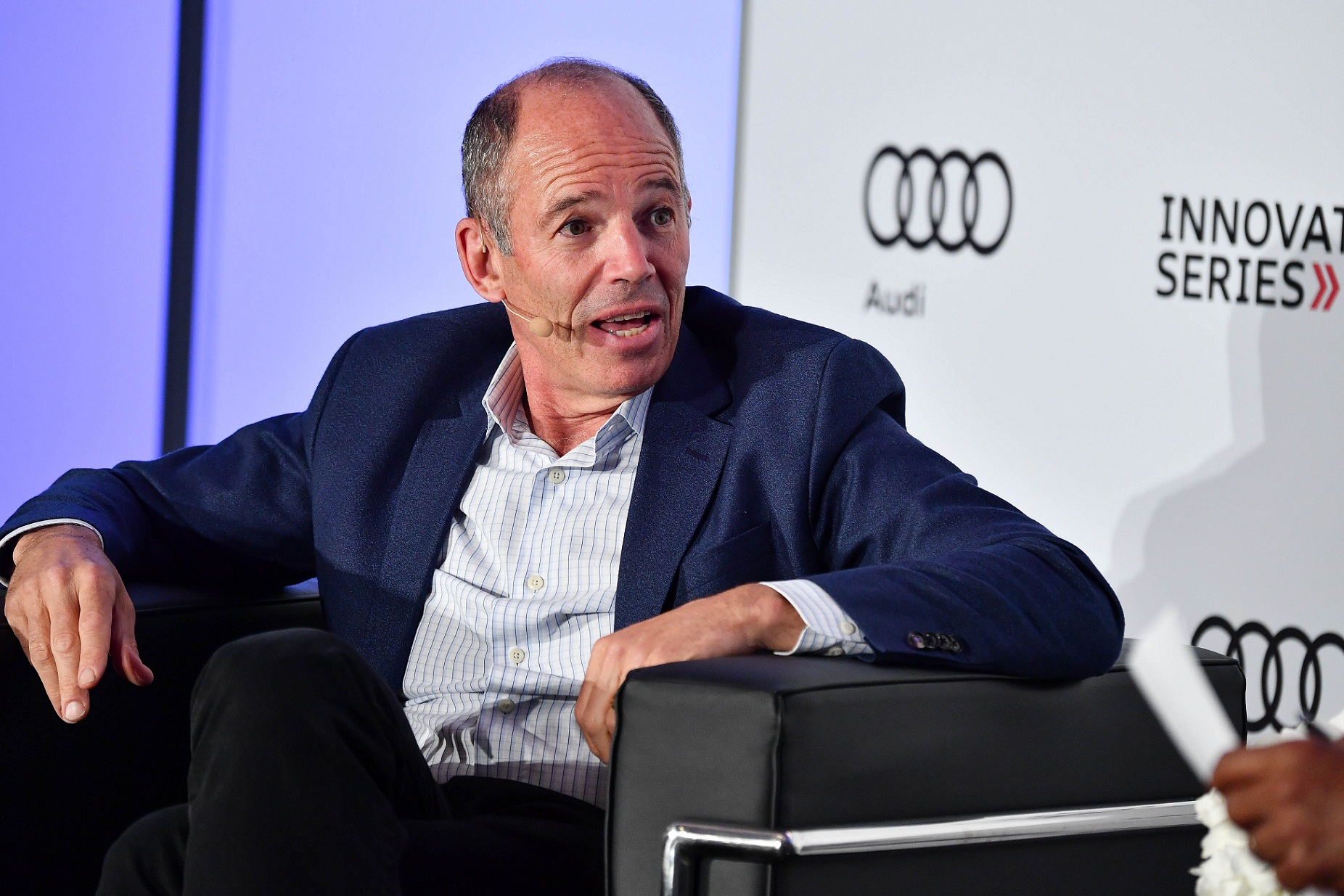It all began on a hunch: In 1998, Reed Hastings mailed himself a CD simply to find out if it was possible for people to rent videos by mail-service. The CD came back in one piece, and an idea was born. That was when titan Blockbuster seemed unstoppable, and carving out a new rental niche may have been a pipe dream. (DVDs had yet to break through the market, but those in the know saw the potential.)
Netflix was launched that year with his partner, Marc Randolph, with the humble vision to operate differently. Twenty years later, however, Blockbuster has since vanished, while Netflix – a mammoth streaming on-demand service – employs 5,000 people, and reaches out to 125 million subscribers in more than 90 countries.
Randolph not only named the company but was first CEO, responsible for product development, branding and initial user interface.
The company went public in 2000, with Randolph moving to other endeavours two years later.
In Toronto in June, speaking at the Audi Innovation Series, Randolph said that: “I love bringing people with me to help me solve a hard problem. And what I wanted to accomplish with Netflix was: let’s solve hard problems together. Let’s take a billion dollar category. Let’s take a category which is dominated by one company (Blockbuster) that everyone hates. Let’s go after that.”
Today, Randolph is an angel investor and serves on the boards of Looker Data Sciences and Chubbies Shorts, and previously served on the boards of Getable, Rafter, ReadyForce.
Pursuit spoke with Randolph about his entrepreneurial life.
As an angel investor, what do you look for in pitches?
Ever seen Shark Tank? It’s a ridiculous show for every reason, but the pitches are real. Sometimes the pitches that come to me are terrible, but if something intrigues me about it, I’ll follow up. You never know.
You have to grab someone with an idea and hold their attention.
They need to tell me: Why it’ll make money, why he is the team that’ll do it.
I work with lots of entrepreneurs, trying to pick the ones that I really want to spend time with.
I see angel investing from a different lens now, that’s much more of a personal fulfillment, and in some ways, trying to let entrepreneurs who I like have a shot of the same kind of fun or potential success that I had.
What’s key to maintaining customer loyalty?
It seems obvious, though there might be a twist to it. You just have to meet their needs more than anyone else does. It might seem self-evident. The actual execution is really hard because you’re always competing against others. It’s listening closely to what someone actually wants, and not being confused, or making up your own rules. The customer has to trust you.
The online world is constantly evolving. How does one keep on the pulse of what’s going on?
First of all, you’ve got to be relentlessly curious because the answer is you don’t know what to ride on. You have to try everything.
I try everything, and I end up with some real dog stuff, but occasionally you stumble on something, and you go ‘wow this is really cool.’ I mean even something as silly as Twitter, which I, as a 50-year-old man 10 years ago, thought this was kind of crazy. Especially the idea that I would have anything meaningful to say. I don’t Tweet anymore. But it is a great source of learning about things quickly and instantaneously.
I feel the same way about all technology; I want to experience them. There’s nine of them you try, and after a month of it, you go ‘no, this really is stupid’, but that’s how you figure those things out.
Don’t be scared to embrace things, and see if you like them.
Netflix has rebooted some television shows, like Full House and Arrested Development. Are we as consumers gravitating more to nostalgia?
[Nostalgia’s] not coming back. The interest has always been there. We all love good stories. What’s changing is that we no longer feel that one size fits all. Before, these network shows had to reach a huge audience. Now, streaming allows us to find narrow demographics, and that’s a powerful thing. It shows you can still be economically viable with a niche.
There’s always a new way to think about business, and it’s usually not just for the sake of doing something different. Look at something that has always been, and then bring new insight to it.


